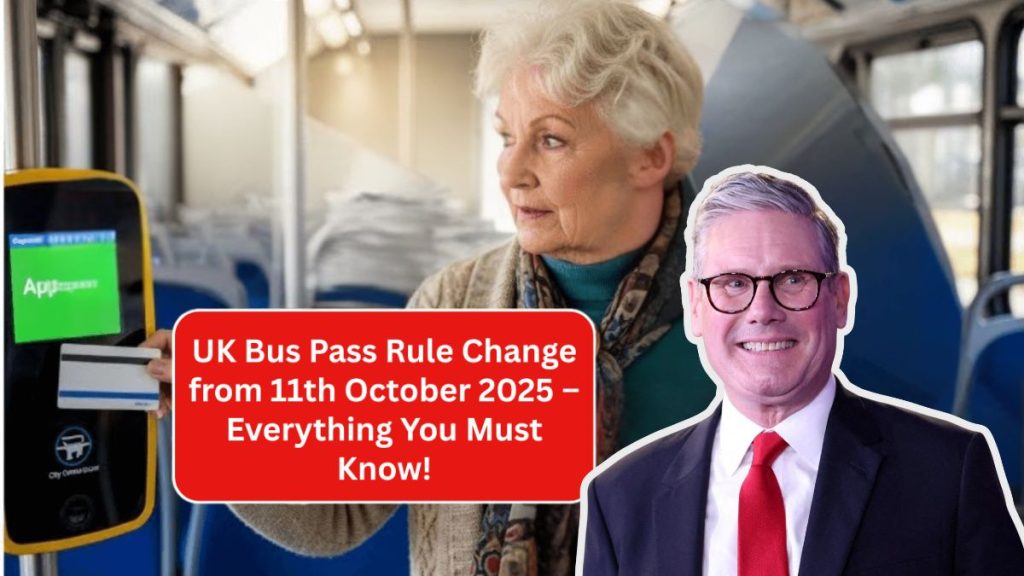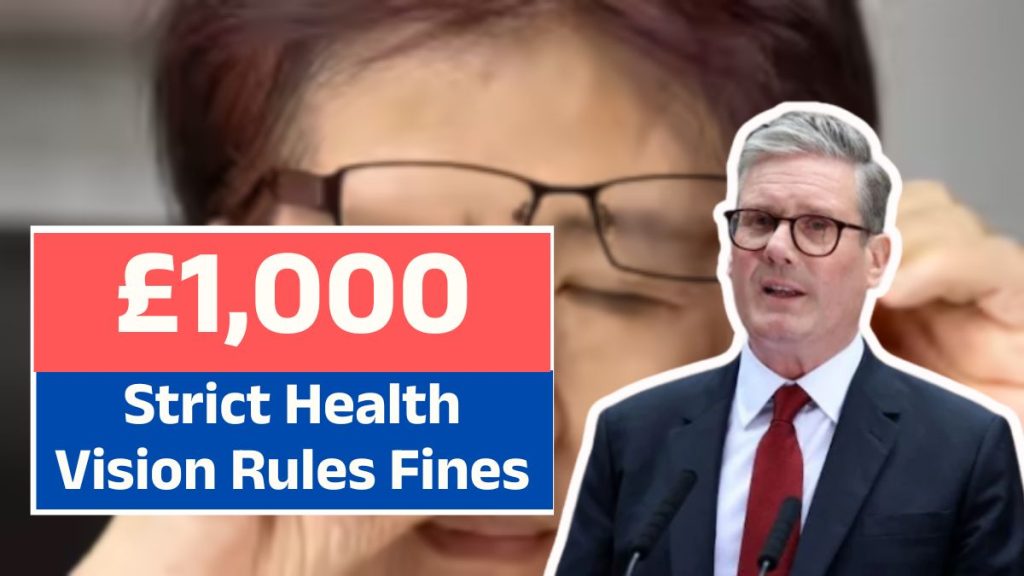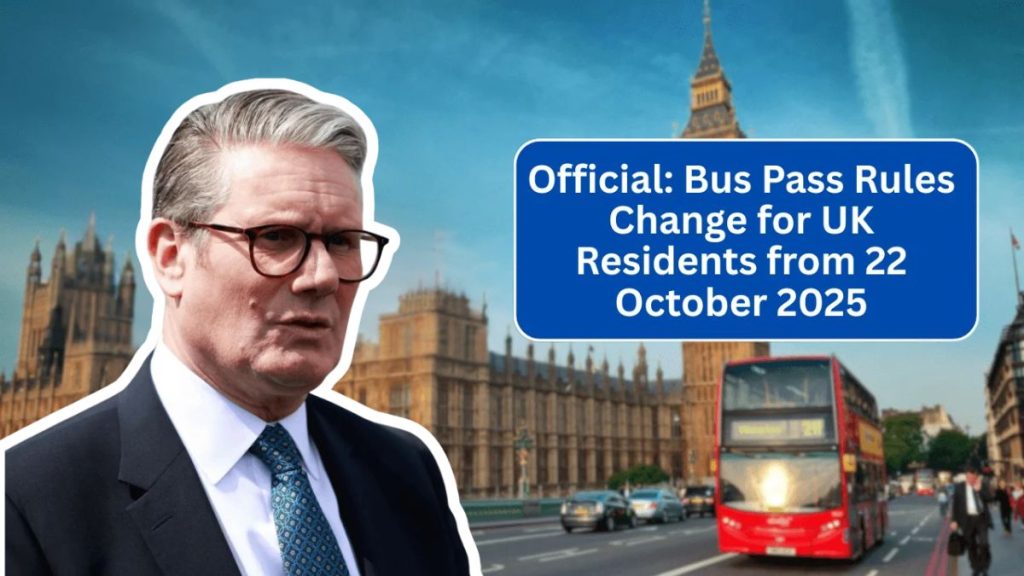The UK Government has officially confirmed a series of significant bus pass rule changes taking effect on 27 October 2025. These reforms represent the most comprehensive update to the National Concessionary Travel Scheme in over a decade, affecting millions of older and disabled passengers across England.
Under the new plan, eligibility criteria, concession hours, and verification procedures will be modernised to ensure the scheme remains fair, sustainable, and digitally secure. The update is part of the government’s Public Transport Accessibility and Sustainability Reform Plan 2025, aimed at balancing social welfare with long-term financial viability for local councils.
Why the Rule Change Was Needed

According to the Department for Transport (DfT), the existing system has become outdated and financially strained, with increasing costs and inconsistent regional policies. Free bus travel, while essential for promoting independence and social inclusion, now costs councils over £1.3 billion annually.
Officials say the new reforms are designed to:
- Align eligibility with the State Pension Age (SPA).
- Eliminate regional inequality in concession access.
- Introduce digital verification to reduce fraud.
- Promote eco-friendly practices and efficiency.
The 2025 revision marks a shift toward a modern, technology-driven approach to public transport benefits.
New Eligibility Criteria from 27 October 2025
From October 2025, eligibility for free bus passes in England will be tied directly to the State Pension Age, ensuring consistent standards across regions.
Key Updates
- Older Person’s Bus Pass: The qualifying age will rise with the State Pension Age, currently 66 and increasing to 67 by 2028.
- Disabled Person’s Bus Pass: No age changes apply, but stricter medical verification will now require certified assessments to confirm long-term mobility or sensory disabilities.
This adjustment ensures the scheme remains targeted to those most in need while aligning with current national pension and welfare policies.
New Travel Timings and Operational Adjustments
The government is standardising travel hours across England to improve network efficiency and balance fare revenue.
New Travel Times (Effective 27 October 2025)
- Free travel: 9:30 AM to 11:00 PM on weekdays.
- All-day free travel: Weekends and public holidays.
This replaces the previous system where some councils offered all-day weekday travel. The DfT stated the change prevents “funding distortion and regional inconsistency.”
Key Rule Changes at a Glance
| Category | Current Rule (Before 27 Oct 2025) | New Rule (From 27 Oct 2025) |
|---|---|---|
| Eligibility Age | 60 years (varies by region) | Linked to State Pension Age |
| Disabled Pass | Broad eligibility criteria | Stricter certified medical proof |
| Travel Hours | All-day or council-specific | 9:30 AM – 11:00 PM weekdays |
| Funding Source | Local authority only | Shared central-local funding model |
| Verification | Optional ID | Mandatory national digital ID card |
Introduction of the National Digital Bus Pass
Starting with the 2025 rollout, the government will launch a digital ID verification system, followed by full digital pass integration in 2026.
Each new bus pass will be linked to a National Insurance Number or Blue Badge ID to verify eligibility and prevent duplicate or fraudulent use.
Key Features of the Digital Pass
- Accessible through the UK Transport Smart Card App.
- Enables renewals, suspensions, and updates online.
- Replaces paper and plastic passes by 2027.
This new system promises greater convenience for passengers while reducing administrative costs for councils.
Impact on Existing Bus Pass Holders
The DfT has confirmed that no immediate cancellations will occur for existing valid passes.
Transition Plan
- Current passes remain valid until their printed expiry date.
- Upon renewal, holders must meet updated age and verification requirements.
- Those unable to use digital systems will retain paper or card alternatives during the transition period.
The government says these steps will ensure a smooth, non-disruptive transition for millions of older and disabled passengers.
Regional and Council-Level Variations
While England’s framework will follow the national model, regional authorities will retain limited flexibility to introduce local enhancements.
Regional Highlights
- London: The 60+ Oyster Card will remain, though eligibility may shift to pension-age residents by 2026.
- Manchester: Plans for an “Evening Saver” add-on for low-income seniors.
- Scotland and Wales: No immediate changes; existing national concession schemes continue.
Each local transport authority will issue updates detailing regional exceptions and added benefits before implementation.
Government’s Official Statement
Transport Minister Rachel Maclean stated that the update “ensures the free bus travel scheme remains fair, future-proof, and sustainable for years to come.”
She added:
“With the cost of providing free travel rising sharply, aligning eligibility with the State Pension Age and introducing digital verification will protect the scheme and ensure support reaches those who truly need it.”
Public and Expert Reactions
Reactions to the announcement have been mixed.
- Age UK welcomed the continuity of the scheme but called for temporary relief for people nearing pension age who may now face a delay in eligibility.
- Transport unions and regional councils supported the digital ID initiative as a way to reduce misuse but raised concerns about implementation costs and digital inclusion for seniors.
- Some pensioner advocacy groups fear that individuals aged 60–65 will lose vital mobility benefits during the transition.
The DfT says ongoing consultations will help identify and mitigate these challenges before the full rollout.
Steps for Citizens to Prepare Before 27 October 2025
To ensure uninterrupted travel under the new rules, the government urges all eligible citizens to take the following actions:
- Check eligibility using your date of birth and current State Pension Age.
- Renew early if your pass expires before October 2025.
- Download the Transport Smart Card App to create your digital ID profile.
- Verify identity through your National Insurance Number or Blue Badge.
- Stay informed via council announcements and DfT updates.
Completing these steps will help avoid travel disruption and ensure a smooth transition to the modernised system.
Economic and Environmental Benefits
The new bus pass model is also designed with long-term sustainability in mind.
- The DfT estimates an annual saving of £180 million by eliminating duplication and paper processing.
- The shift to digital cards will cut plastic card waste by 45%, contributing to the UK’s Net Zero 2050 environmental goals.
- Reallocation of savings will help fund rural bus routes and low-emission vehicle initiatives.
By improving cost control and environmental efficiency, the 2025 reform supports both fiscal and green policy goals.
What the 2025 Bus Pass Changes Mean for the Future
The October 2025 reforms represent a turning point in public transport accessibility policy.
By linking bus pass eligibility to the State Pension Age and embracing digital technology, the government aims to create a fairer, more transparent, and financially viable system.
While the higher age threshold may temporarily inconvenience some citizens, the long-term outcome is a stronger, more sustainable concessionary travel network that protects free transport for future generations.
FAQs
Q1. When will the new UK bus pass rules take effect?
The new rules will be implemented nationwide on 27 October 2025, with full digital integration expected by 2026.
Q2. What is the new age requirement for a free bus pass?
Eligibility will now match the State Pension Age, currently 66, increasing to 67 by 2028.
Q3. Will my existing bus pass still be valid?
Yes. Existing passes remain valid until expiry, after which renewal under the new rules will apply.
Q4. What is the purpose of the new digital ID requirement?
The digital bus pass system will help reduce fraud, improve renewal convenience, and lower administrative costs.
Q5. Can councils still offer additional travel concessions?
Yes. Regional authorities like TfL and TfGM may offer local enhancements such as off-peak or evening passes for specific groups.















